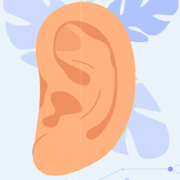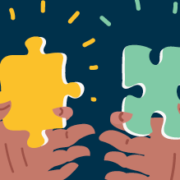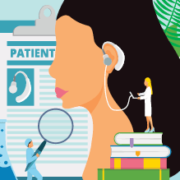6 Ways to Keep Your Hearing Loss From Getting Worse
Looking Out for Your Hearing Health Is Even Easier Than You Think
If you have hearing loss, you’re not alone. With an estimated 466 million children and adults living with disabling hearing loss, per the World Health Organization, it’s one of the most common chronic physical conditions around the globe.
Though most types of hearing loss cannot be reversed, they can often be successfully managed with today’s innovative technology. And there are empowering ways you can keep your hearing loss from getting worse. Read on for six tips to do just that.
- Avoid Noisy Environments
Among the most preventable causes of hearing loss, harmful noise levels — especially those reaching 85 decibels or higher — can do a number on your ears. The damage could be temporary or permanent. And it can worsen with greater noise exposure. When possible, avoiding harmful noise levels altogether is the best bet.
- Wear Hearing Protection
Of course, avoiding excess noise isn’t always practical — especially if it’s part of your occupation. Whether you’re working around jet engines, calling games amid the whistles and cheers of a packed arena, or operating machinery at a farm, workplaces can be loud. That’s where hearing protection comes in. We recommend custom protection for even more effectiveness and a secure fit.
- Address Earwax Buildup
Excess cerumen, or earwax buildup, can also be the culprit in worsening hearing loss. Typically your ears naturally push out excess wax, but sometimes the accumulation can form a blockage. To remove an earwax plug, gently soften it with drops of warmed olive oil, almond oil water, or a commercial solution — as long as you don’t have an eardrum perforation.
- Beware of Ototoxicity
Some medications, including certain drugs used to fight cancer, can be ototoxic, or damaging to the inner ear, potentially leading to hearing loss or worsening of existing hearing difficulties. Rather than stopping the medication if prescribed, talk to your doctor or another provider about the risks, potential alternatives, and possible ways to mitigate any threats to your hearing.
- Think Total Wellness
It’s easy to think of hearing loss as just an isolated challenge, but it can go hand in hand with other conditions, such as heart disease, kidney disease, diabetes, dementia, and other health problems. Though cause and effect aren’t necessarily conclusive in all cases of hearing loss, staying dedicated to total wellness can potentially go a long way toward helping preserve your current hearing levels.
- Lean Into Technology
As mentioned early in this story, today’s exciting, advanced technology plays a big role in successfully managing hearing loss. With the help of a licensed hearing care professional and solutions tailored to your needs, you can discover a whole new world of sound. Using hearing technology also helps you preserve the hearing you have.
So don’t wait. Take steps to preserve your hearing today. If it’s been a while since your last hearing check, or your current hearing devices don’t seem to help as much as they used to, contact us for an evaluation. We’re committed to helping you hear your best!











 Proudly Canadian and Independently Owned and Operated
Proudly Canadian and Independently Owned and Operated 

